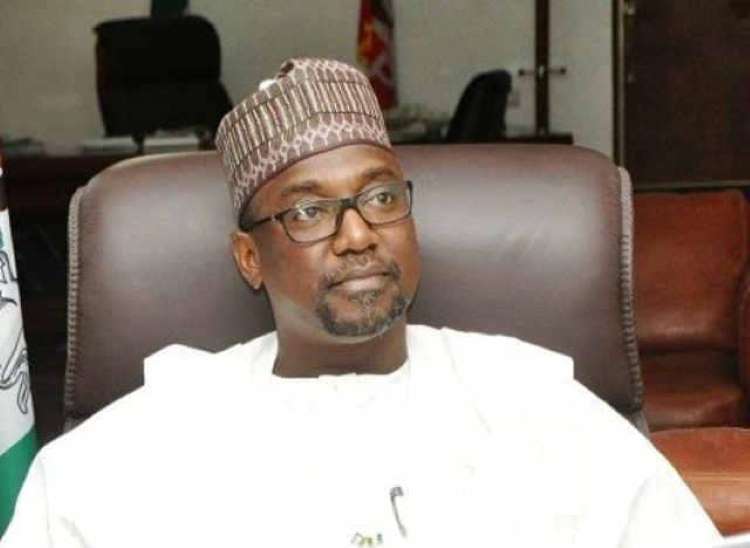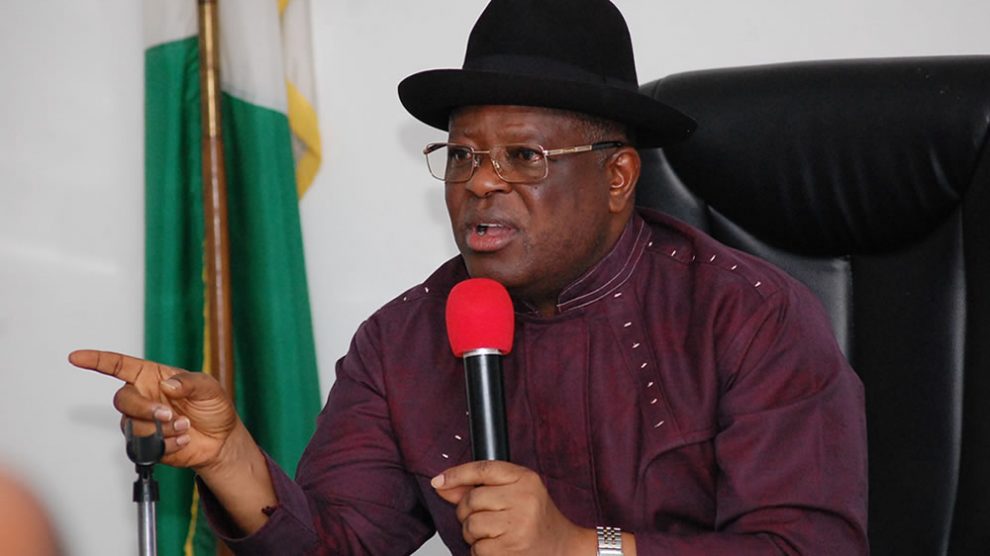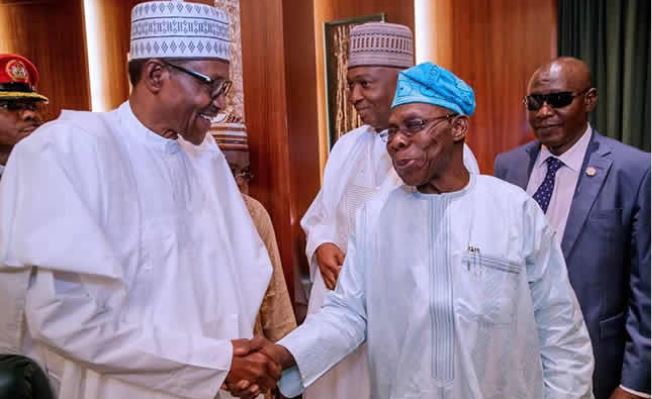…Says restructure your minds before asking for nation’s restructure
The presidency on Saturday accused some bitter, unpatriotic and evil Nigerians of expressing sadness at the news of the country’s exit from recession which was announced on Tuesday by the National Bureau of Statistics, NBS.
This was revealed by the Special Adviser on Media and Publicity to President Muhammadu Buhari, Femi Adesina in a special piece he wrote to lash out at those expressing divergent views ever since the news of the exit from economic recession broke.
The presidential aide urged those category of Nigerians to seek a restructure of their minds before demanding that the nation should be restructured.
In his words: “The sing-song in the country today is restructuring of the polity. We want more states. We want a return to regional structure. We want a revision of the revenue allocation formula. We want six vice presidents, one from each geo-political zone. We want those zones to be the federating units, rather than the states. And so on, and so forth.
In fact, so loud is the cacophony of voices over restructuring that if you ask 100 people what they mean, they give you 100 different explanations. But as a country, I believe we will get there someday. And soon.
However, is political restructuring the most urgent thing Nigeria needs now? I don’t think so. For me, what is more urgent is the restructuring of the Nigerian mind. A mind that sees the country as one, that believes that we have a future and a hope, that believes that we are one people under God. But what we see now is ruinous for any country. It is hemlock, bound to poison the entire polity, and send it to a premature perdition”.
Adesina explained that while these few but bitter Nigerians who are probably still pained by their 2015 political loss happily received the news of the nation slippering into recession in 2016 without questioning, they have however stoop so low to question the news of the exit from recession.
“On Tuesday, the National Bureau of Statistics (NBS) announced that we had exited from economic recession. It was cheery news for majority of Nigerians, save for those in the gall of bitterness. They spat in the sky, and collected the spittle with their faces. Who gave Nigeria the permission to exit recession? Who gave her the audacity of hope? How can the economy attempt to rebound, when it should sink deeper and deeper into the miry clay? They were in the doldrums, unhappy because good news came for the country. In their befuddled minds, Nigeria must never see a silver lining in the sky. The ravening clouds must ever remain victorious, must forever possess the sky, simply because of primordial reasons.
The party in power is not my own, so why should Nigeria make progress under it? The President in office was not the one I voted for, so why should he succeed? He does not speak my language, he is not of my religion or ethnic stock, so why must Nigeria prosper under him? They, therefore, throw all sorts of tantrums, like a child whose lollipop is taken away, and attempt to rubbish the news on exit from recession. And those same people would canvass for a restructuring of the polity. Big mistake. Wrong priority. They need to have their minds restructured first, so that they have goodwill towards their own country, and towards all men. Left to them, they wish that when NBS releases results for the next quarter, Nigeria should have gone back into recession. Filthy dreamers! Awful imaginations! They need a restructuring of their minds, and quickly, too,” Adesina said.
He noted further: “The National Bureau of Statistics announced our descent into recession. They embraced the news, almost with sickening glee. Now, the same agency has announced exit, and they begin to question its impartiality. What kind of people are they? They want to hear only bad news?
May their minds be restructured, lest bad news dog their footsteps. Malediction? Am I cursing anybody? Not at all. Just a warning, and a call to new attitude, new thoughts, new conduct. The things we expect have a way of coming upon us. Ask the biblical Job. “What I feared has come upon me. What I dreaded has happened to me.”(Job 3:25).
The seasoned journalist further explained that while the news of the exit from recession is cheering, President Muhammadu Buhari and the NBS had clearly warned that the nation’s economic team should not relax on their oars as there was still a lot to be achieved to finally put the nation on the path of greatness.
“President Buhari says exit from recession is cheery news, but until the life of the average Nigerian is positively touched by the economy, he doesn’t consider the job done.
Very good. Even the NBS, which brought the good news, says the economy is still fragile, and the good work must continue, so that we don’t slide back. That is exactly what this government would do. That is the motive behind the ERGP (Economic Reconstruction and Growth Plan). So, let nobody be filled with diabolic thoughts. Government does not feel it is there yet. Action stations! All hands on deck,” he explained.


